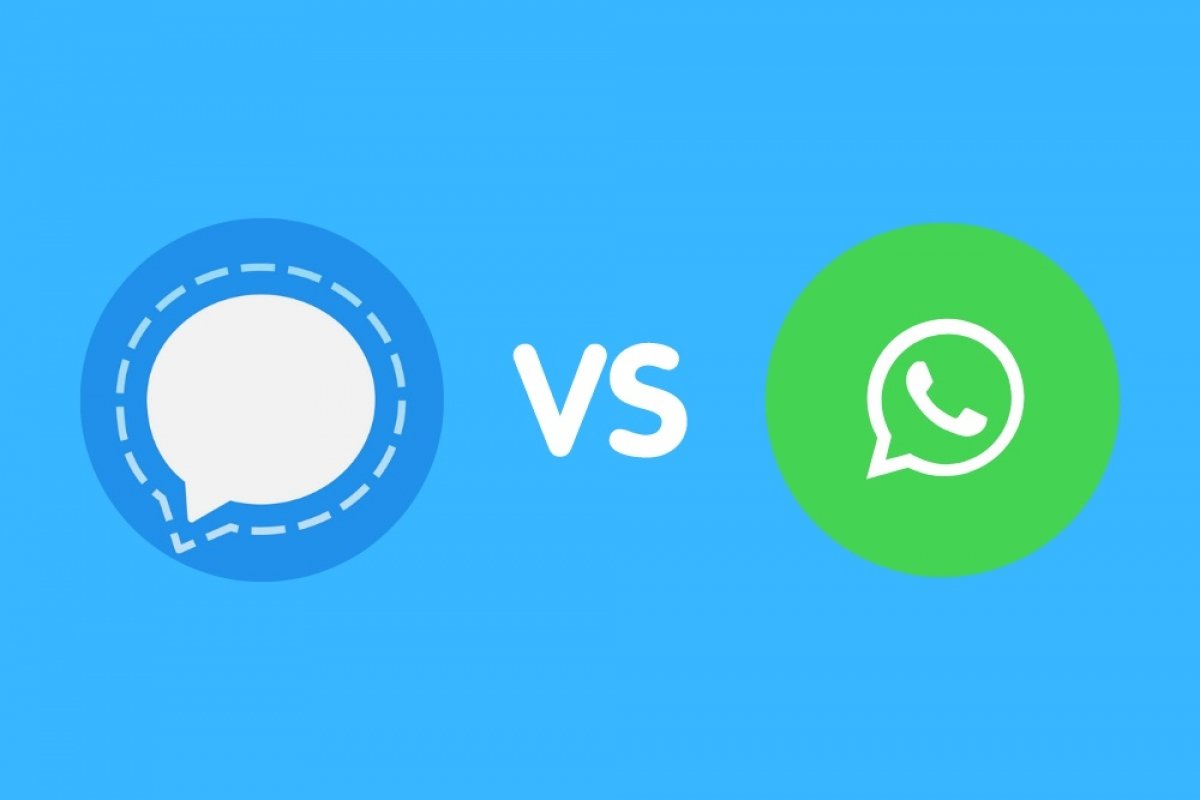Nowadays, talking through Signal or WhatsApp is as normal as having a coffee in the morning. But of course, with so much hype lately about privacy, the use of personal data, and the new features that these apps bring, it is not uncommon for more than one to wonder: which one is better?
It is not just about sending messages, photos, or voice messages; your information, how you chat, and with whom are also important factors. So if you are trying to decide which one to use, keep reading, because we will tell you everything in detail.
WhatsApp vs Signal: Which is the better messaging application
Messaging is no longer just a matter of convenience, but also of security. In the WhatsApp vs Signal debate, the former dominates for its popularity, while the latter stands out for its privacy-oriented features. But which is the best messaging application? Let's compare them!
Privacy and security
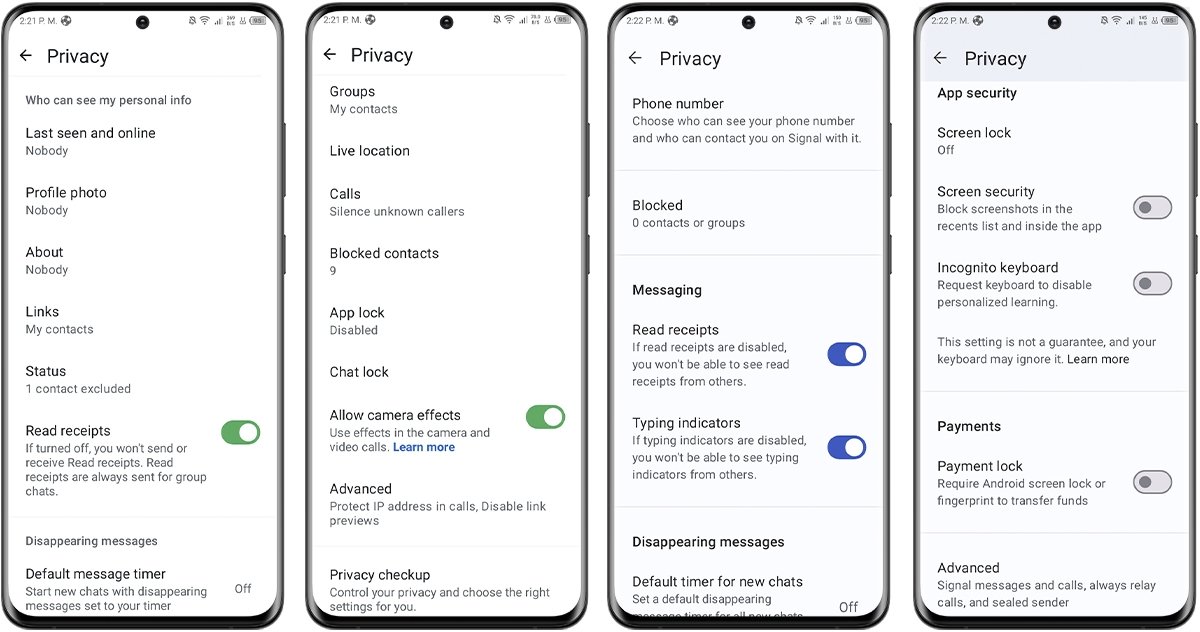 WhatsApp vs Signal - Privacy and security
WhatsApp vs Signal - Privacy and security
When it comes to privacy, Signal takes the lead. It was created with security as a priority, is open-source, and uses end-to-end encryption. In addition, it does not store data in the cloud and does not collect metadata or personal information, ensuring greater security.
On the other hand, although WhatsApp also offers end-to-end encryption for messages, calls, and videos, it belongs to Meta (yes, the Facebook guys), and that already raises suspicions. This company is known for collecting users' account information and app usage, which many do not like at all.
Appearance and interface
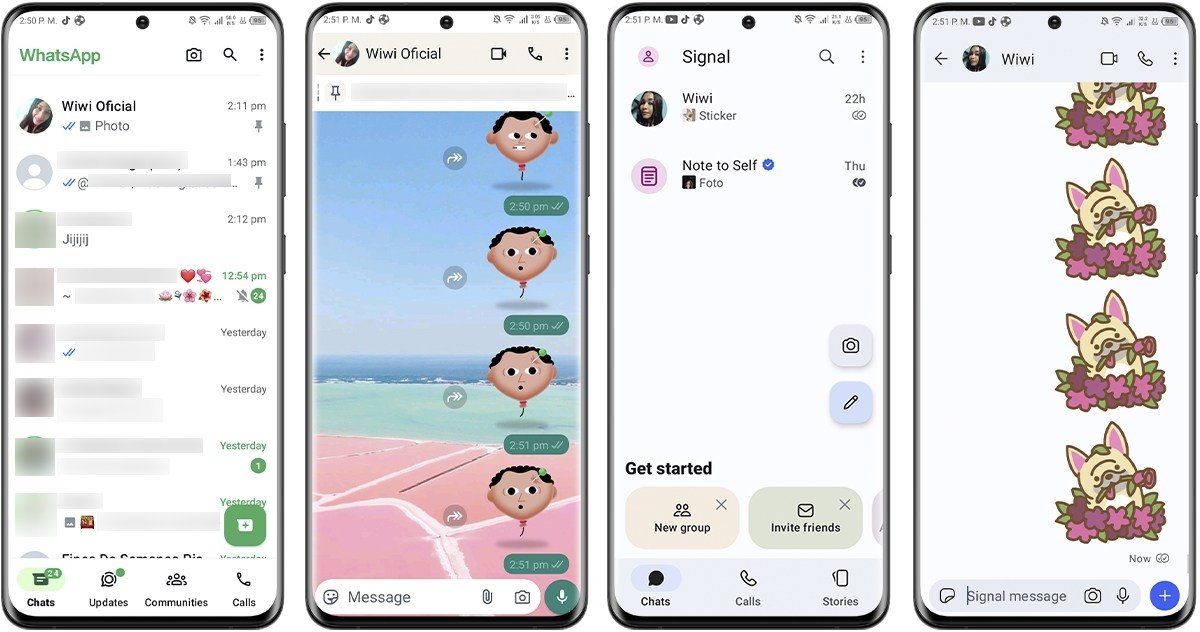 WhatsApp or Signal - Appearance and interface
WhatsApp or Signal - Appearance and interface
Signal offers a clean and minimalistic interface with features such as chats, calls, video calls, stories, groups, and payments. Although it may seem less intuitive for WhatsApp users, its design prioritizes security, reduces distractions, and reinforces its commitment to privacy.
On the other hand, WhatsApp offers a familiar and accessible experience thanks to its intuitive design with four tabs: Chats, Updates, Communities, and Calls. This new design relocates the tabs to the bottom of the screen, making it easier to use with one hand.
Updates and news
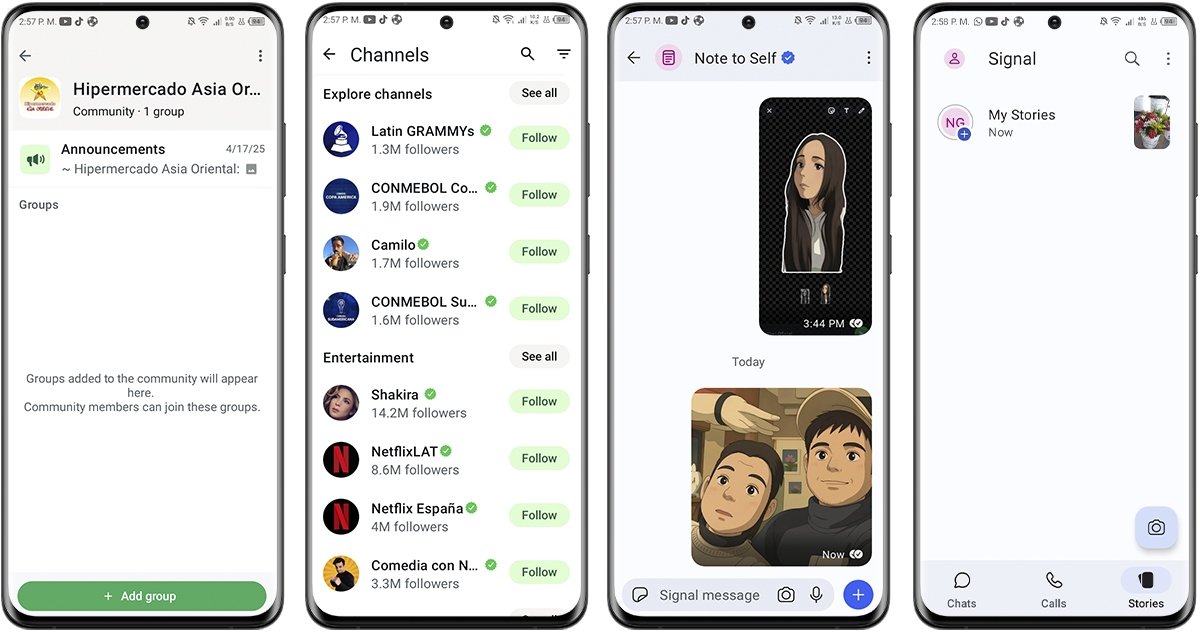 WhatsApp vs Signal - Updates and new features
WhatsApp vs Signal - Updates and new features
WhatsApp is frequently updated and incorporates features that go beyond simple tweaks. From the ability to mention friends in your statuses, to reactions, to the inclusion of Telegram-style channels, the app introduces constant improvements that keep it up to date.
On the other hand, Signal also receives updates, albeit more discreetly. Its enhancements usually focus on security, encryption, and data management. It is not that the app does not evolve, but it does not prioritize eye-catching effects or daily use functions as WhatsApp does.
Accounts and contacts
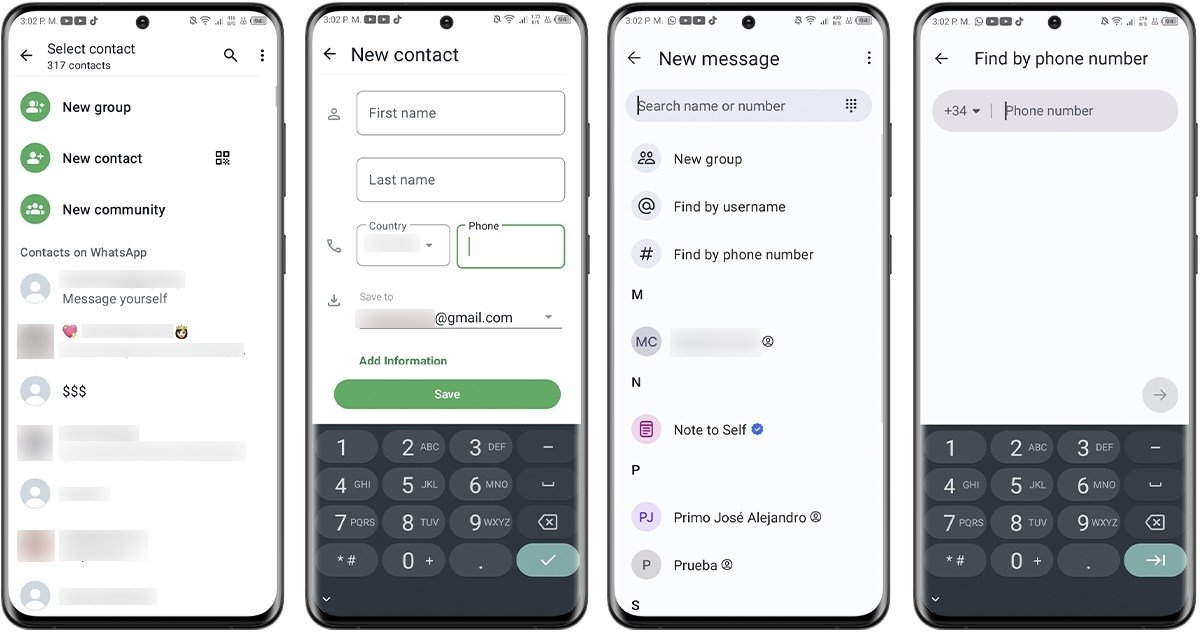 WhatsApp vs Signal - Accounts and contacts
WhatsApp vs Signal - Accounts and contacts
Meta's platform stands out for its ease of use. You register with your phone number and can save contacts directly in the app without adding them to your smartphone's address book. This makes management easier and keeps your address book cleaner and more organized.
Signal also lets you register with your phone number and view and manage the contacts on your smartphone. It also offers options to hide your number, control who can find you through it, and even use the app more anonymously. In this aspect, it clearly outperforms WhatsApp.
Number of users
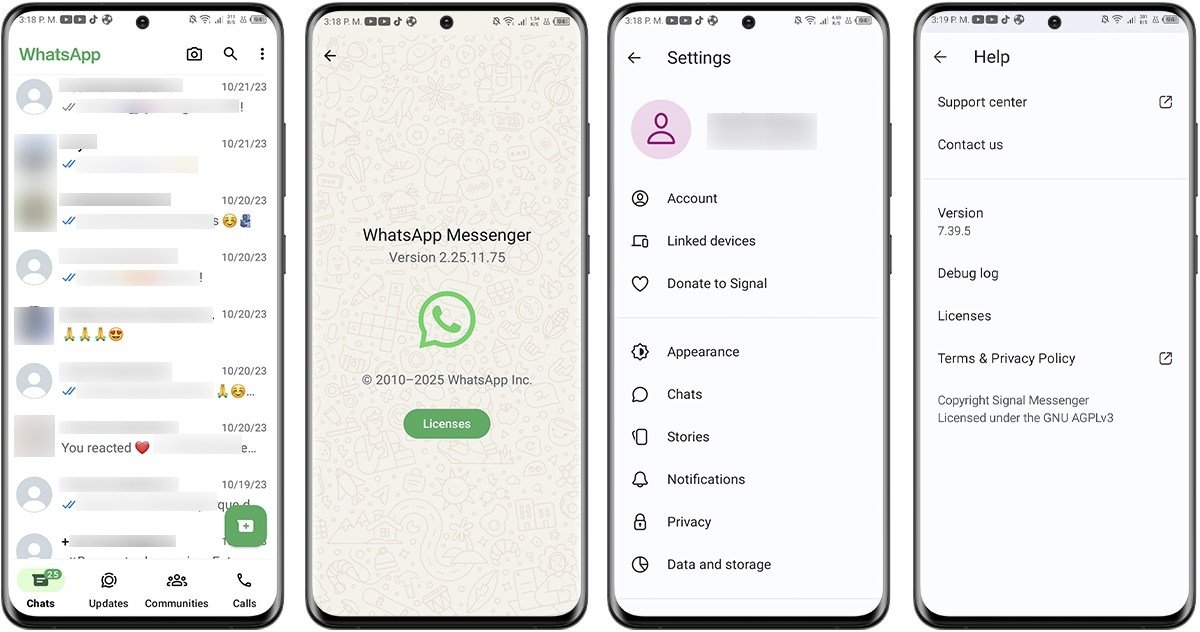 WhatsApp vs Signal - Number of users
WhatsApp vs Signal - Number of users
WhatsApp remains the world's most popular messaging app. It surpasses its competitors with over 3 billion active users. It is almost certain that any family member, friend, or co-worker has an account, which greatly facilitates communication.
On the other hand, Signal has far fewer users, although it has grown in the wake of Meta's privacy scandals. It currently has between 40 and 70 million monthly active users. Although it does not compete on volume, it stands out for offering one of the most secure platforms on the market.
Calls and video calls
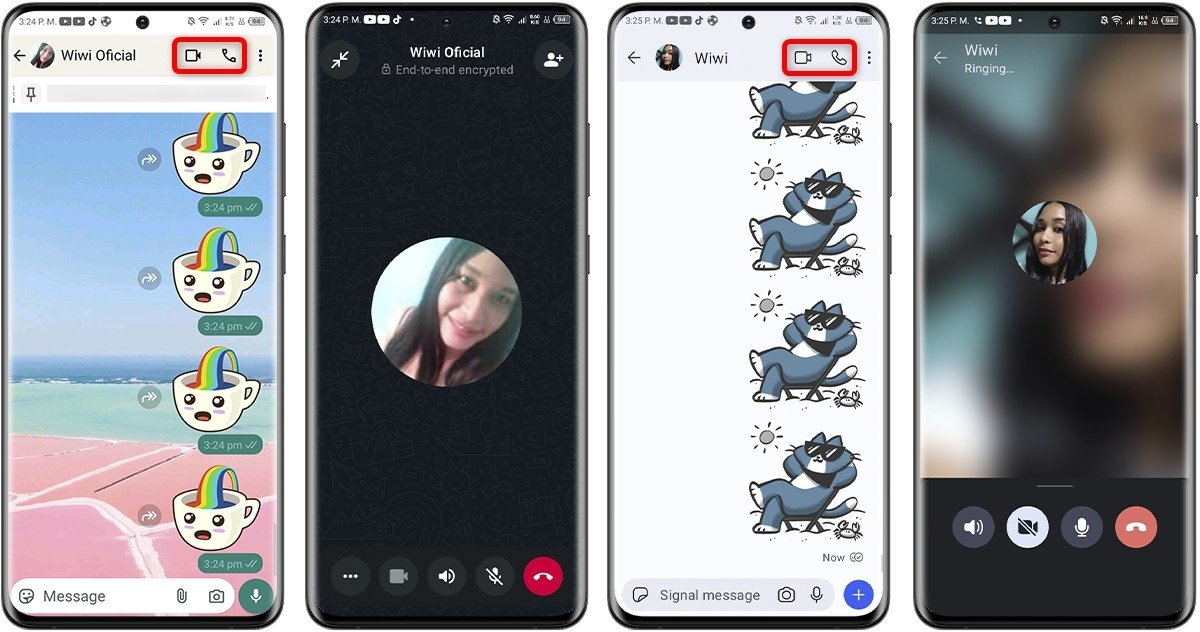 WhatsApp vs Signal - Calls and Video Calls
WhatsApp vs Signal - Calls and Video Calls
Both WhatsApp and Signal allow you to make free end-to-end encrypted voice and video calls, which is always a plus. The operation is very similar in both applications. WhatsApp allows up to 32 people per group video call, but Signal surpasses it with a limit of up to 50.
The quality is good in both, as long as the internet is good. WhatsApp tends to hold up better on weak connections, such as when you are on the subway or in an area with poor coverage. Signal, on the other hand, needs a somewhat more stable network to perform at the same level. This isn't a major issue, but it is noticeable.
Customization options
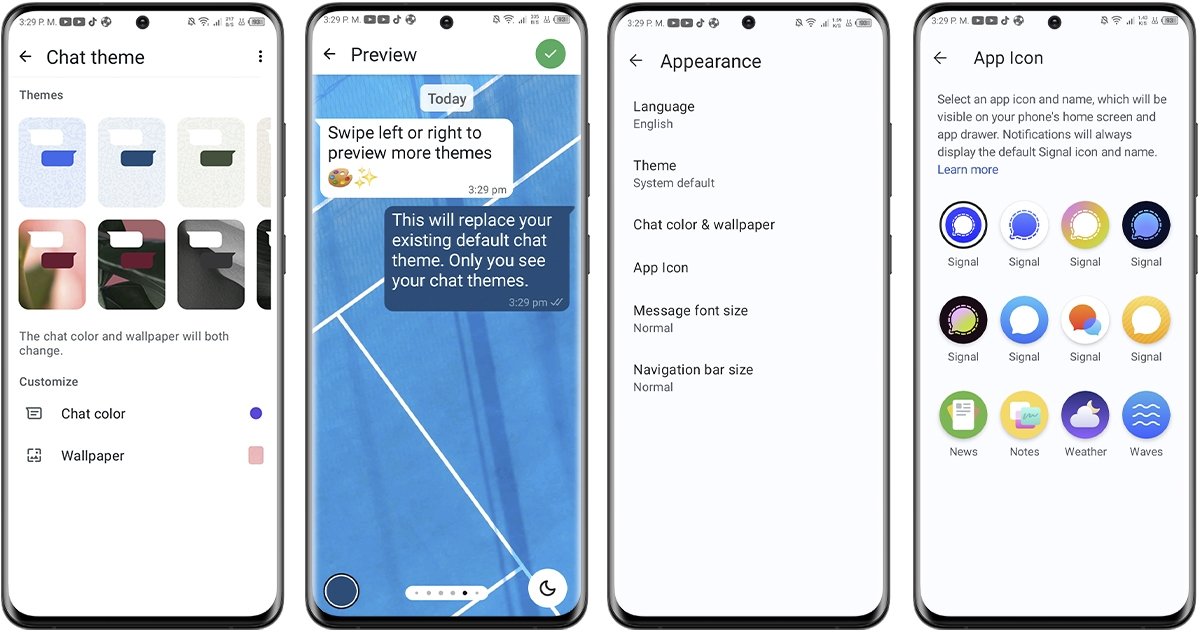 WhatsApp vs Signal - Customization options
WhatsApp vs Signal - Customization options
The Meta app offers more customization options. You can change the theme, chat background, bubble color, and adjust the colors according to your preferences. It also allows you to customize each chat individually and organize conversations into customized lists, which is ideal for those seeking more control.
On the other hand, Signal offers a more conservative customization approach. You can change the color of the chats, the backgrounds, the theme, and even the app icon. It does not have as many options as WhatsApp, but it fits well with those who value an environment without as many distractions.
Unofficial clients or MODs
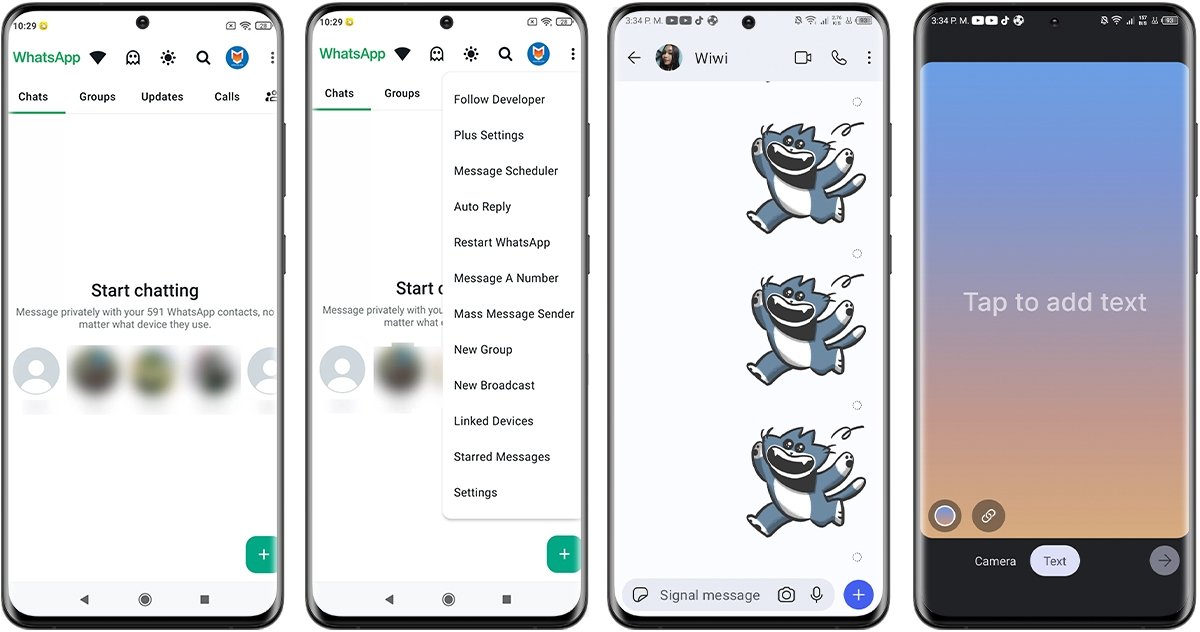 WhatsApp vs Signal - Unofficial clients or MODs
WhatsApp vs Signal - Unofficial clients or MODs
Neither application allows unofficial clients or MODs, as they violate the platforms' policies and may compromise users' privacy and security. Both services have clearly stated that their use may result in account suspension.
In the case of WhatsApp, some MODs such as WhatsApp Plus or GBWhatsApp remain popular, as they offer additional features such as more customization options, hiding the last connection time, and your online status. Although there are no popular Signal MODs, some users are looking for alternatives with more customization options.
Stickers and GIFs
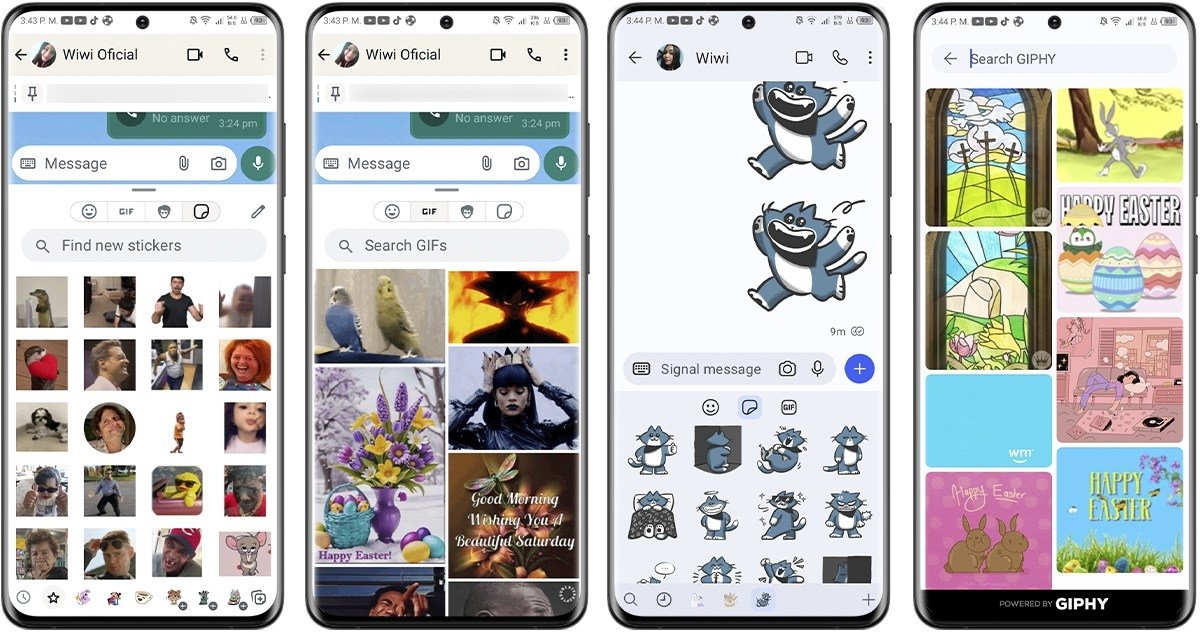 WhatsApp or Signal - Stickers and GIFs
WhatsApp or Signal - Stickers and GIFs
WhatsApp offers a wide variety of stickers and GIFs, even allowing you to create custom stickers from selfies and share packs with friends. It also features creative in-camera effects, adding filters and backgrounds to photos and videos, enriching the experience.
Signal, on the other hand, is more limited in this area. Although it offers stickers and GIFs, the variety of options and customization can't compare to Meta's app. This can be a point against if you are one of those who like to communicate visually in chats.
Multi-platform support
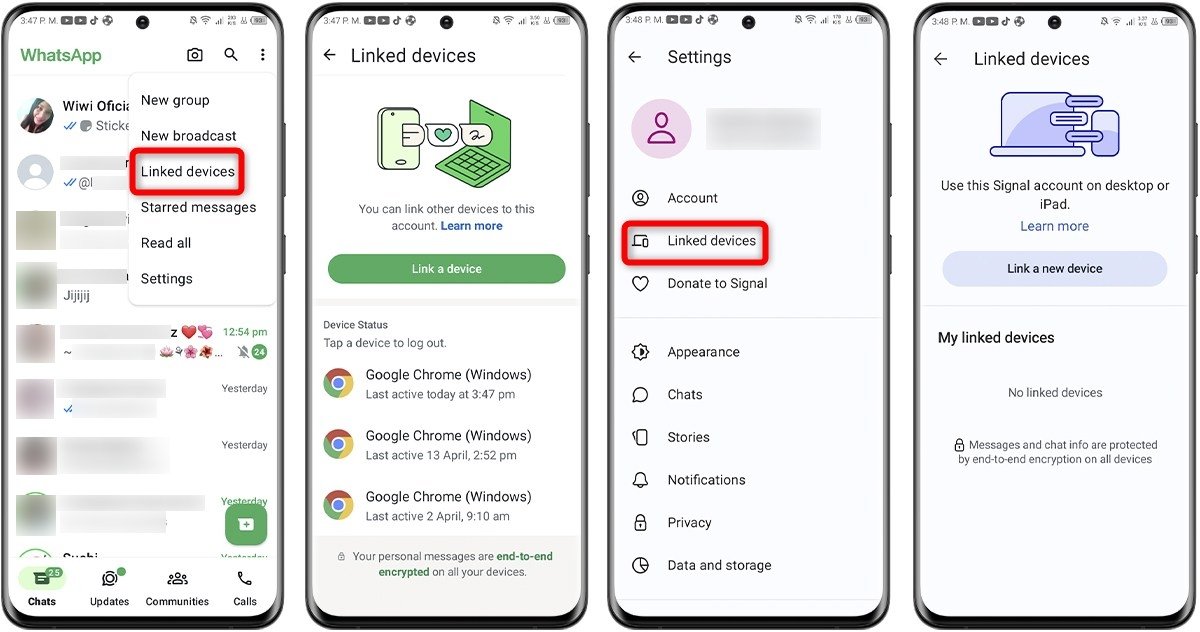 WhatsApp vs Signal - Cross-platform operation
WhatsApp vs Signal - Cross-platform operation
Meta's messaging service allows you to use up to 4 devices (Android, iOS, Windows, or Mac) and continue chatting even if the smartphone is turned off. However, disappearing photos and videos can only be seen from a mobile device, which shows the service still relies on your smartphone for certain features.
Signal lets you link up to 5 devices per phone, such as Android, iOS, and PC (Windows, macOS, or Linux), but does not support Android tablets. Once you enable this setting, you can synchronize the last 45 days of files and chat without having your mobile device online.
File transfer (photos, videos, and documents)
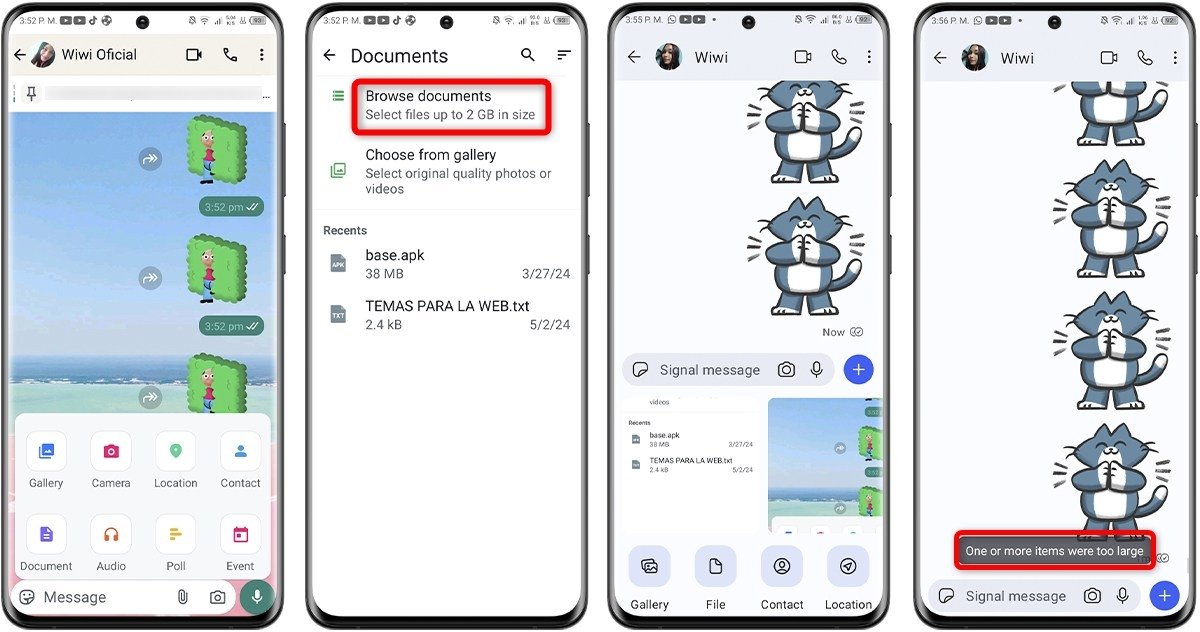 WhatsApp vs Signal - File transfers (photos, videos and documents)
WhatsApp vs Signal - File transfers (photos, videos and documents)
WhatsApp beats Signal by quite a bit when it comes to file transfer. It allows sending files up to 2 GB, while Signal has a 100 MB limit. If you usually send long videos, heavy documents, or presentations, WhatsApp is the most convenient choice.
Although both apps allow you to send content without compression if you send it as a file, Signal's low limit makes it much less useful. If you need to share large files without looking for external alternatives, WhatsApp is the clear winner.
Final comparison: WhatsApp or Signal
Here is a list of summarized features for quick comparison:
WhatsApp Features
- Owner: Meta (formerly Facebook).
- Privacy and security: End-to-end encryption, but it collects some data.
- Interface: Intuitive and accessible.
- Updates: More frequent, with new functions and features.
- Accounts and contacts: Save contacts directly in the app.
- Active users: Over 3 billion users.
- Voice and video calls: Video calls with up to 32 users.
- Customization: Many options (themes, stickers, backgrounds, filters, chat organization).
- Unofficial clients or MODs: Does not allow MODs.
- Stickers and GIFs: Wide variety, including custom stickers and photo effects.
- Supported Platforms: Android, iOS, Web, Windows, and Mac.
- Multi-platform support: Up to 4 devices, but needs your mobile device for some features.
- File transfer: Files up to 2 GB.
Signal Features
- Owner: Signal Foundation.
- Privacy and security: End-to-end encryption. It doesn't collect metadata or personal data.
- Interface: Minimalistic and user-friendly.
- Upgrades: Less frequent, focused mainly on security and technical improvements.
- Accounts and contacts: Greater control and anonymity over contacts.
- Active users: Between 40 and 70 million users.
- Voice and video calls: Video calls with up to 50 users.
- Customization: Limited options, distraction-free design.
- Unofficial clients or MODs: Does not allow MODs.
- Stickers and GIFs: Less variety, no custom stickers or advanced effects.
- Supported Platforms: Android, iOS, Windows, Mac, and Linux.
- Multiplatform support: Up to 5 devices, without relying on your smartphone.
- File transfer: Files up to 100 MB.

